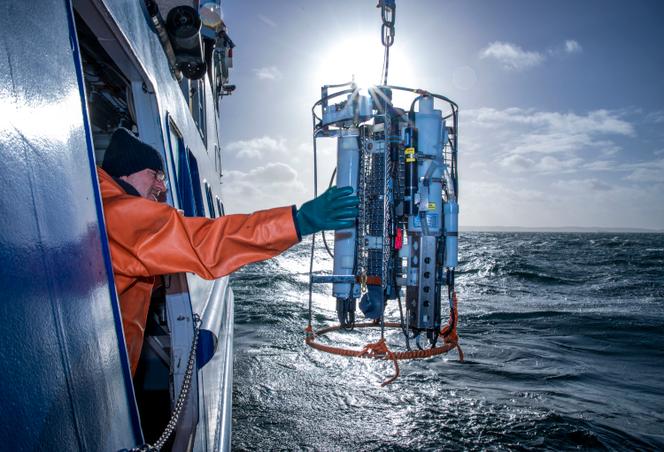


From the hushed interior of his fish restaurant in Wladyslawowo, a seaside town on the Polish coast about 50 kilometers north of Gdansk, Rafal Golla, who has been casting his nets into the sea for three decades, dreams of just one thing: scrapping his boat and accessing European Union funding for the retraining of Baltic Sea fishermen. "I hope to be able to do this as early as 2025. What's the point of going out to sea for a few sprats? I'm content to go out to sea for the statutory 90 days a year to qualify for aid. Fishing in the Baltic is dead in Poland," said the 40-year-old, who runs a successful establishment with his wife – Tawerna Klipper – and has just inaugurated five apartments for the ever-increasing number of vactioners staying on the Baltic shore.
"In the early 1990s, I had three employees, there was cod galore. Now there isn't any, the sprats they eat are caught en masse by big boats, which turn them into animal meal [to feed farmed salmon]," he said. The profile of this inshore fisherman turned restaurateur, taking advantage of the tourists who flock to the Baltic Sea beaches in July and August, is hardly surprising.
"We've lost 50% of our members in 10 years: We have 120 today," said Jacek Wittbrodt, head of the Wladyslawowo-based Sea Fishermen's Association. This 60-year-old fisherman added that "cod and salmon, to which small coastal fishermen no longer have access, used to be our main source of income. We can't live on flatfish alone. To make ends meet, his organization has also given in to the siren call of summer visitors, converting several plots of its parking lot into motorhome sites.
The Baltic's dwindling fish stocks are nothing new but they are getting worse all the time, as a result of unbridled fishing until the late 1980s, when fish stocks began to decline. "Back then, there were so many that you could catch whatever you wanted. The whole country was waiting for its fish," said Jacek Wittbrodt.
In November 2021, after numerous warnings from fishermen and scientists, and a moratorium in the second half of 2019, the European Union's Council of Ministers finally banned commercial cod fishing in the Baltic Sea. Like cod, salmon can only be caught accidentally. Sprat quotas have also been reduced. As for herring, another key fish for the fishermen of this northern and eastern European sea, it is becoming dangerously scarce, while Brussels is reluctant to ban its capture outright.
Dennis Bergman, a 39-year-old Swede, is still trying to catch them in the nets he casts between Sweden and Finland in the Gulf of Bothnia, like the six generations of men in his family before him. "For the last four years, it's been catastrophic," he said. The herring catches are increasingly rare and the fish thin. "I'd say it's gone down by 95%," he said.
You have 61.9% of this article left to read. The rest is for subscribers only.
